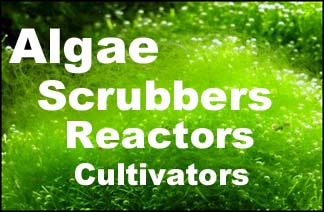I thought I'd mention what I'm trying now...
With the help of my algae scrubber, I've moved the mirror away from one side and put a 2l bottle next to it, with an airline in.
I've put about 1.2 litres of RO salt water at 1.019 SG, then put 500ml of a culture of phytoplankton I got from ebay.
I'm going to try the Miracle Grow fertialiser route for feeding the phytoplankton.
So, I called up Miracle Grow in the UK, and I presumed that the lawn feed would be the safest, so asked them, and they said it was safe to use on lawns around ponds, and that if any was sprayed into the pond or washed into it by rain that it would only increase algae growth.
I then replied "Perfect!" to her suprise
Apparently the lawn feed fish safe in small quantities (obviously not if you dump the whole bottle in), and there's nothing too nasty in the ingredients.
I've added 3ml of Miracle Grow Lawn Feed to the phytoplankton and I'll see how well it works!
If all goes well, once it's all been absorbed I'll split the culture 50/50 into another new culture and for use in the tank.
I'll water down the phytoplankton in RO salt water (so that the green colour doesn't affect the test, then multiply the results to get the correct PPM for the phytoplankton) and test for phosphates and nitrates, and when they're undetectable I'll try using them. Hopefully this way it should stop any nitrates or phosphates from reaching the tank and affecting any results from the algae scrubber.
If any does get in, I guess the scrubber will grow algae faster :lol:
So, here goes, Day 0, straight after setup:
[attachment=0:1a3va40b]phytoDay0.jpg[/attachment:1a3va40b]
I'll use the same f-stop, shutter speed, ISO and white-balance to compare colours more accurately.








 Reply With Quote
Reply With Quote